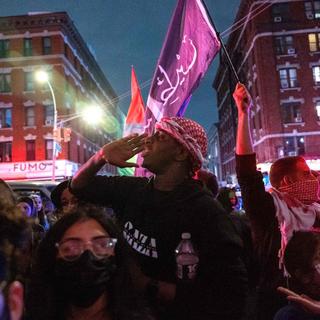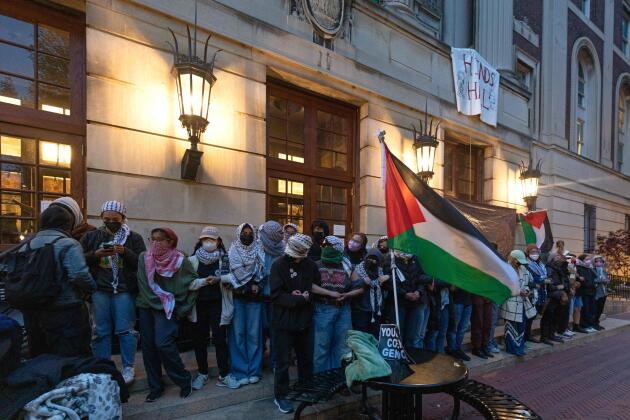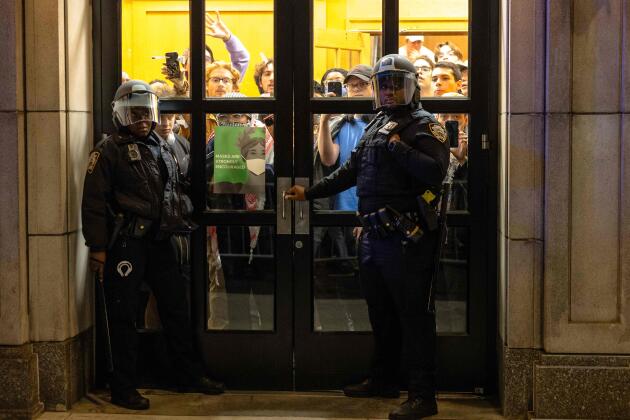


The war in Gaza is sending American campuses into turmoil
NewsOn Tuesday, police evacuated an encampment of pro-Palestinian students at Columbia, the epicenter of a movement demanding that higher education institutions renounce their investments in companies closely or remotely linked to the war in Gaza.
Suddenly, an encampment in support of Gaza sprang up at a university in Salt Lake City, in the heart of Utah. Until then, there had been no Middle East-related demonstrations on a campus reputed to be one of the least politically active in the United States. The occupation was followed by incidents. On the night of Monday, April 29, riot police charged and made 19 arrests.
The state's Republican governor, Spencer Cox, enumerated a list of acts not protected by the Constitution's First Amendment, which concerns free speech – violence, property damage, camping in facilities. But the American Civil Liberties Union countered that the role of universities is not to "suppress protests," even if they are "loud, disruptive and offensive to others."
This is a surprising example of the protest movement – until now confined to the east of the country and to Austin, Texas, where it has been severely repressed by Republican Governor Greg Abbott – which is now spreading throughout the country. Its supporters evoke the Vietnam War or the fight against apartheid, but the mobilization, amplified by social media, still involves small numbers, and police have made "only" 1,500 arrests on some 30 campuses, according to CNN. Everywhere, the authorities are walking a razor's edge between maintaining order, freedom of expression and anti-Semitic outbursts.
An ultimatum
Columbia, in New York, remains the epicenter of the protest. On Tuesday, the school was cordoned off before the police carried out a forceful evacuation in the evening, resulting in a series of arrests. Not only had the protesters (a few hundred out of 36,000 students) defied the ultimatum set by the university president to remove their tents from a lawn in the heart of the campus, but they had also taken over the Hamilton Building, famous for having been occupied in 1985 during calls for a boycott of South Africa still in the throes of apartheid. The building was briefly renamed "Hind's Hall" in honor of 6-year-old Hind Rajab, who was killed on January 29 in Gaza alongside her family.


This humiliation of Columbia's leadership was unacceptable to Joe Biden. "President Biden respects the right to free expression, but protests must be peaceful and lawful. Forcibly taking over buildings is not peaceful – it is wrong," the White House said on Tuesday, adding that the American president condemned "anti-Semitic defamation" as well as the "use of the term 'intifada,'" Arabic for uprising.
Are the outbursts deep-rooted or just a zoom effect, accentuated by social media? On Tuesday, a 58-year-old teacher, Ann Miller, accused the media of giving a distorted image of reality outside the gates of Columbia: "Saying that these protests are disruptive? Let's be serious!"
You have 69.06% of this article left to read. The rest is for subscribers only.
